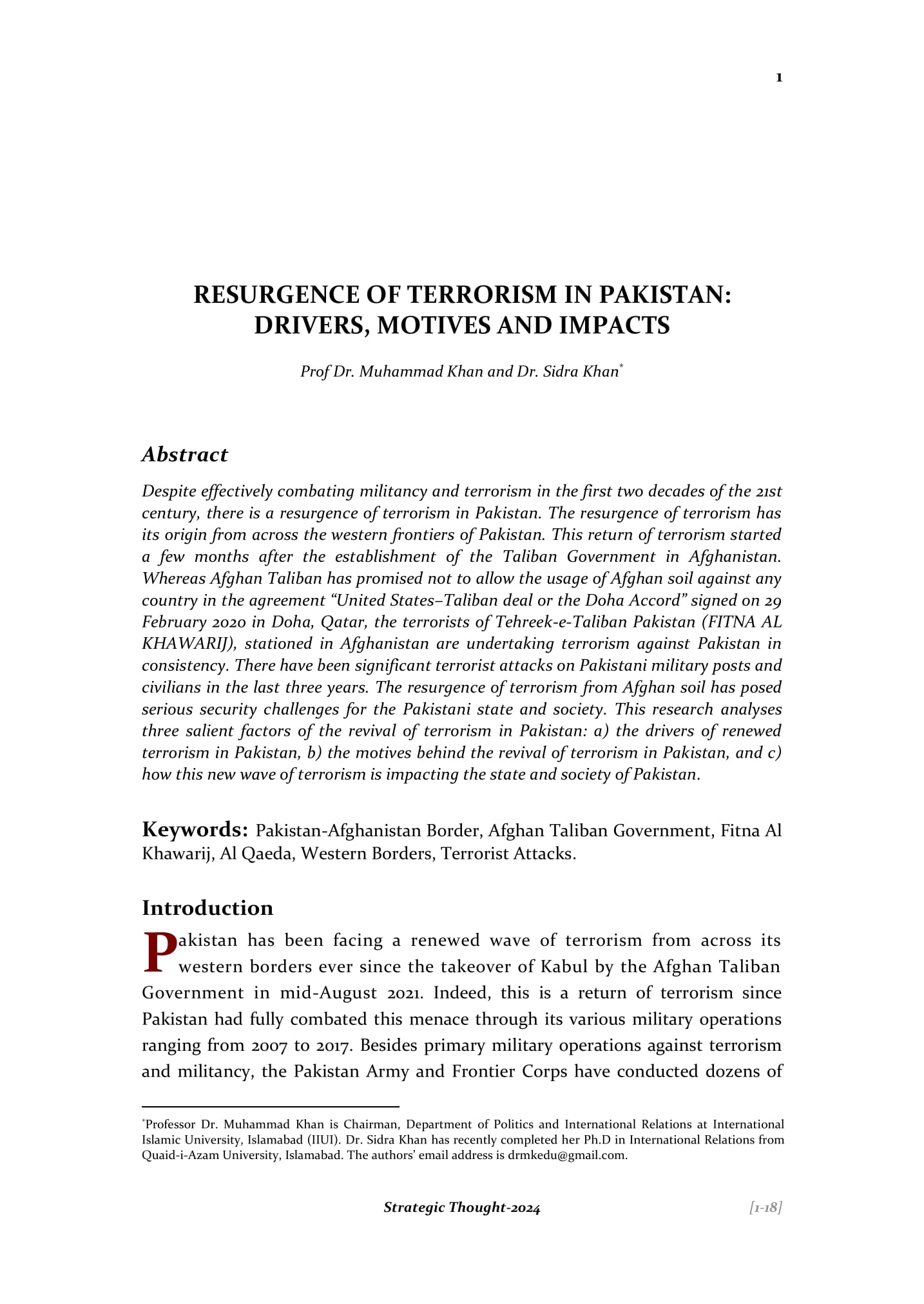RESURGENCE OF TERRORISM IN PAKISTAN: DRIVERS, MOTIVES AND IMPACTS
Keywords:
Pakistan-Afghanistan Border, Afghan Taliban Government, Fitna Al Khawarij, Al Qaeda, Western Borders, Terrorist AttacksAbstract
Despite effectively combating militancy and terrorism in the first two decades of the 21st century, there is a resurgence of terrorism in Pakistan. The resurgence of terrorism has its origin from across the western frontiers of Pakistan. This return of terrorism started a few months after the establishment of the Taliban Government in Afghanistan. Whereas Afghan Taliban has promised not to allow the usage of Afghan soil against any country in the agreement “United States–Taliban deal or the Doha Accord” signed on 29 February 2020 in Doha, Qatar, the terrorists of Tehreek-e-Taliban Pakistan (FITNA AL KHAWARIJ), stationed in Afghanistan are undertaking terrorism against Pakistan in consistency. There have been significant terrorist attacks on Pakistani military posts and civilians in the last three years. The resurgence of terrorism from Afghan soil has posed serious security challenges for the Pakistani state and society. This research analyses three salient factors of the revival of terrorism in Pakistan: a) the drivers of renewed terrorism in Pakistan, b) the motives behind the revival of terrorism in Pakistan, and c) how this new wave of terrorism is impacting the state and society of Pakistan.
Bibliography Entry
Khan, Prof Dr. Muhammad and Dr. Sidra Khan. 2024. "Resurgence of Terrorism in Pakistan: Drivers, Motives and Impacts." Strategic Thought (6): 1-18.





